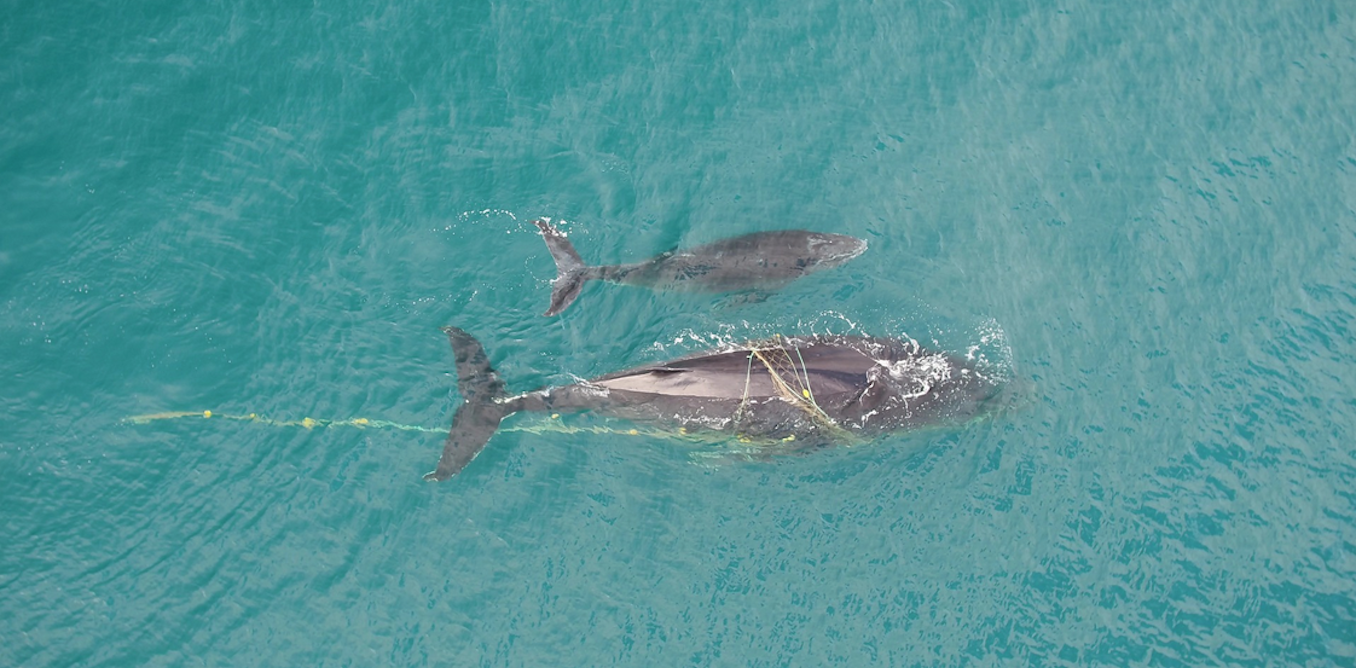Are we the first civilization in the Milky Way? | David Kipping
In the video “Are We the First Civilization in the Milky Way?” astronomer David Kipping delves into humanity’s enduring question: Are we alone in the universe? Kipping explores the allure of discovering Earth-like planets and the deeper implications this search holds for understanding potential alien life. He discusses the pitfalls of the Rare Earth hypothesis, which suggests that the emergence of complex life is exceptionally rare, positing instead that myriad paths could lead to life across diverse environments.
Kipping highlights tools employed by astronomers, such as the Drake equation, which estimates the number of communicative civilizations, and the Kardashev scale, which categorizes civilizations based on their energy consumption. He notes that the quest for biosignatures and technosignatures—indicators of life and technology, respectively—presents distinct challenges, including the risk of misidentifying non-biological phenomena as evidence of life.
Despite our ongoing search, Kipping emphasizes the significance of Hart’s Fact A, which points to the absence of known extraterrestrial civilizations coexisting with us on Earth. He articulates the complexity of proving the existence—or non-existence—of alien life, suggesting that while we might explore the cosmos, definitive answers may remain elusive for generations to come. Kipping invites viewers to ponder the vast, intricate tapestry of life in the universe, igniting curiosity and wonder about what lies beyond our planet.
Watch the video by Big Think
Author Video Description
“Deep down the natural endpoint of this whole goal of looking for planets is to answer the question: are we alone?”
Subscribe to Big Think on YouTube ► https://www.youtube.com/channel/UCvQECJukTDE2i6aCoMnS-Vg?sub_confirmation=1
Up next, The great quest for extraterrestrial life | David Kipping Full Interview ► https://www.youtube.com/watch?v=HI0cvzQiuvI
Astronomer David Kipping explores humanity’s oldest question: if the universe is vast and ancient, why haven’t we found anyone else in it?
He argues that our longing to discover another Earth often clouds our reasoning, and that the greatest challenge in the search for life isn’t technology, but temptation.
0:00 Are we alone?
1:19 The Drake equation
2:08 The problem with the Rare Earth hypothesis
2:56 What is life?
5:55 The Copernican principle
7:08 The weak anthropic principle
8:57 The Kardashev scale
10:58 Hart’s Fact A
15:49 How often does simple life become complex?
17:45 Using biosignatures and technosignatures to find alien life
21:01 Our past quests for alien life
23:10 The difficulty in proving a negative
Read the video transcript ► https://bigthink.com/series/the-big-think-interview/search-alien-life/?utm_source=youtube&utm_medium=video&utm_campaign=youtube_description
———————————————————————————-
Go Deeper with Big Think:
►Become a Big Think Member
Get exclusive content, early, ad-free access to new releases, and more. https://www.youtube.com/@bigthink/membership/
►Subscribe to Big Think on Substack
Explore content that enlightens, inspires, and transforms.
https://bigthinkmedia.substack.com/subscribe/
►Get Big Think+ for Business
Engage learners like never before with high-impact video microlearning from the biggest thinkers in the world. https://bigthink.com/plus/?utm_source=youtube&utm_medium=video&utm_campaign=youtube_description
———————————————————————————-
About David Kipping:
David Kipping is an Associate Professor of Astronomy at Columbia University and the founding director of the Cool Worlds Laboratory, where he leads groundbreaking research on exoplanets, exomoons, and the search for extraterrestrial life. As a pioneer in the detection of moons around planets outside our solar system, his work has been published in prestigious scientific journals and has significantly advanced our understanding of distant planetary systems. Kipping employs sophisticated statistical methods to analyze data from NASA’s Kepler and TESS missions, extracting subtle signals that reveal the properties of these distant worlds. Beyond academia, he created and hosts the popular Cool Worlds YouTube channel, which has attracted over 750,000 subscribers through its accessible explorations of cosmic frontiers and speculative astronomy. After receiving his PhD from University College London and holding positions at Harvard University, Kipping has established himself as a respected researcher who effectively bridges rigorous scientific investigation with compelling public science communication.
About Big Think
Big Think is the leading source of expert-driven, actionable, educational content — with thousands of videos, featuring experts ranging from Bill Clinton to Bill Nye, we help you get smarter, faster. Get actionable lessons from the world’s greatest thinkers & doers. Our experts are either disrupting or leading their respective fields.
Video “Are we the first civilization in the Milky Way? | David Kipping” was uploaded on 10/23/2025 to Youtube Channel Big Think





































The why here doesn’t even matter, it is a proven fact we are not, so why would you even consider proving the opposite? Sounds demential…or at least irrational.
I don’t think we’re alone but I do think we’re certainly one of the first in this galaxy anyway.
This is a dumb question. First answer if we were alone, then realize unless we search the entire universe(which is impossible) we can't say there isn't anyone else. The galaxy, and universe are too big. We could have civilizations all around us and we would never know it. Try taking an eye dropper to the ocean to prove that fish don't exist and you'll see the rediculousness of this question.
Most likely we are not the first civilization given the number of stars in this galaxy.
I dont think humanity will survive the search. Maybe something will not even find any proof we ever lived.
While I personally would find great joy in discovering that there's other intelligent life anywhere in the galaxy, or in the universe at large, I have come to the conclusion that, given the immensity of space and time, right now we are probably the only advanced civilization. Now, when I say advanced, I don't mean socially, I mean capable of sending out little probes into the universe.
Whether we are or whether we are not, it makes zero difference because we will never ever know…
Seriously, take a best guess as to how long our species has left…
The universe ain't Contracting pal.
They are just too freakin far away.
Would it be possible for "machine life" to arise without a biological creator? In other words, could machine life arise without being created by some sort of biological organism first?
Finite Nature vs Infinite Nature:
Everything naturally occurring is Nature, which includes plants, microorganisms, humans (all lifeforms), atoms, energy, stars, planets, black holes, cancer, AIDS, space, Dreams, and Consciousness.
(Why would Nature be finite?)
Without Infinity, there is only infinite regress; E.g. String Theory: what caused the strings, where did the strings come from, what came before the strings; E.g. The Big Bang: what caused the initial singularity, what came before the initial singularity, etc. Considering "Nothingness" is an obvious fallacy, there must always be Something.
Prove Nothingness, while keeping in mind: Nothingness can only be "proven" in the absence of an observer. If described (observed) by an observer, Nothing becomes something (think hard about this). This would also connote a field of infinite Nothingness randomly formed a spec (our Universe) of somethingness – which is nonsensical.
Provisional science cannot claim authority over reality, at best it can only provide fuzzy hints. Science is a game of "let’s pretend," played with symbols and sensors. Its power lies in utility, not truth. To mistake physics/maths for reality is to worship the finger pointing at the moon.
Our cosmological sciences are akin to a microorganism residing within a human (on Earth), actively exploring the Andromeda galaxy. Our nearly insignificant signals bouncing off of fragments of Infinity – the margins for error are "astronomical".
"So far as the theories of mathematics are about reality, they are not certain; and as far as they are certain, they do not refer to reality" – Albert Einstein
A thought experiment:
On a plain sheet of paper, draw a single dot (.) in the very center.
The paper represents infinite space. Everything beyond the boundaries of the sheet also represents endless (empty) space.
The dot represents 'The Big Bang'.
Everything humanity is aware of – exists within the dot (our currently expanding universe).
If the observers of this singular dot, zoom far enough away – the dot will cease to exist. The dot will be extinguished through expansion/evaporation – wholly consumed by an infinite void (due to cosmic scales/distances). This would prohibit existence from 'being'. (Yet here we are).
Furthermore this would connote The Big Bang occurred at random, within an infinite void of nothingness – suggesting 'somethingness from nothingness' – which is a fallacy.
Without considering potential forces being exerted upon our reality/universe (from beyond the boundaries of our observations) – is an incomplete interpretation.
Clearly the remainder of the sheet of paper cannot be an infinite void.
The expansion of our universe is accelerating. If our cosmic expansion were occurring within a void, our reality would have concluded before it began (poof). (Yet here we are).
If we are a facet of Infinity – we are Infinity. Along with everything being intimated.
Instead imagine the sheet and everything beyond – riddled with infinite dots.
Every universe is a particle, every particle is a universe.
(Infinity is self-propagating).
Thus Infinity is a superdeterministic preexisting condition.
Infinity being absolute simultaneity.
Expresses infinite probabilities – Deterministically.
Every reality.
Every life.
Is an intended narrative.
(The largest cannot exist without the smallest)
Although our universe is finite (as evidenced by expansion).
Infinity exists at a fixed maximal size, without borders/boundaries: Infinity is forever in every sense, within which infinite universes/realities are housed – each a distinct experience.
(Infinity > Multi)
Infinity accounts for every variation, including variations in thoughts.
Reality is an infinite fractal consciousness; whereby all realities, every possibility, along with every imaginable and unimaginable thing, is a fragment of said consciousness – which we refer to as Nature.
We are Nature.
We are "God" (figurative); fragmented into infinite experiences.
An Infinity without borders or constraints; with infinite energy.
We are all the same entity; existing for the sake of experiences.
Time:
A seemingly endless cadence of day/night cycles, conducted over the course of the Human epoch. Untold billions of Homo Sapiens Sapiens; generation after generation – conditioned by Nature to accept finality. The circadian rhythm, an innate mechanism, a constant reminder; consciousness an ephemeral experience, fleeting with every moment, through every exhalation. Selene a blanket of night, engulfing all into her dreamy embrace – the analog of Stella, raining rays of warmth, nourishing existence into being; beckoning the vivacity of life to stir yet again.
Day into night, night into day – a rhythm to remind us that none of Natures constructs are created without an expiry. Whether measured by 6.62607004 × 10-34 m2 kg / s; or by a Supereon, we are cascading energies, propagating our collective experiences – vainly attempting to elicit a sense of ‘self’ in hopes of staving off oblivion. Not realizing that the only allowable paradox to exist, is existence; a lucid dream conducted by the everlasting artistry of Gaia.
Time.
—
the Alchemist
-Ø1
If intelligent alien life evolved with thought processes like ours, the greed of their leaders would eventually do them in. We are well on our way.
A lot of the words we carry around along our life's journey are deeply problematic.What exactly is meant by the term, "life" is a starting point, philosophically speaking. There's an assumption that life forms in the universe must necessarily follow the laws of Darwinian evolution (to the tee) in operation and testable on Earth, though now it is understood plate tectonics played a significant role in life's development on our planet. Life as it is currently understood is bound up with the category human, exists in relation to the human which renders the pursuit skewed from the onset. David Deutsch thinks we are the most important thing in the universe due to the infinite potential of our explanatory power to solve problems, but he hasn't traveled the entirety of the cosmos to arrive at such an audacious, not to mention, anthropocentric conclusion.
I completely disagree about the simplicity of life starting on our planet based on the time of start. Consider that it has only happened ONCE in the billions of years that conditions have been perfect here… That should be telling. IF it was an inevitably simple process, we would have several competing root genomes, much less origins. That's not what we have here.
Imagine when AI is 100x better than it is now, inserted into robots, then life as we know it, is over.
Aerospace engineer: we encountered alien vessels +27 times. As close as 30m. They are here. There is no Drake equation, we are late. The NHI track people, politics, infrastructure. They likely enforce Terran policies. They likely employ a human force and infrastructure.
Idk, but maybe yes? It looks kinda logical.
This whole video has no new insight that hasn’t been regurgitated multiple times on multiple platforms. It’s just lazy content plain and simple. Radiolab did this better 15 years ago.
All of science has pointed to the fact we are alone. Even if we found single cell organisms, we are alone in our consciousness.
What a stupid question to ask. Is there anybody older than a toddler that doesn't know the answer to this question?
NO. CUZ BIG. There. No point watching a video.
First we need to achieve indefinite life extension
Hopefully we learn to contain our rapacious blood lust otherwise when we finally go out into the Universe its going to be bad news for any aliens we meet.
Hypothesis: Earth life has been seeding exoplanets for at least 3 billion years through microbes hitching a ride inside rock ejecta blasted into space from large asteroid impacts on Earth’s surface. Support: lab experiments have shown microbes can survive space travel inside rock pores (where they live naturally). Mars rocks containing spherical rings of reduced metal and organic compounds. Martian meteorites found on Earth’s surface. Multiple detected interstellar asteroids in short periods of time. All life on Earth has the same fully conserved molecular genetics (inherited from a common rock microbe?). Prediction: Earth life exists in a bubble around our star system and star’s orbit around our galaxies super massive black hole. Question: are we the first to wake up? Is Earth the life progenitor system? If we are, just sit back and wait for others to wake up. 😊 Test: discovery of life in our solar system (outside Earth) sharing the same molecular genetics would support the hypothesis.
The first of all I think we have to define life as cycling interconnected system including diverse organisms and species. Secondly I believe universe protect life systems on the planets from each other because every alien for the life cycling system is always threat for all system and even planet. Thirdly we are living in conscious and living universe that care for everything, rule and direct cosmos.
I don’t think we’re alone in the entire universe
Finally someone opens it's view, Life can be just Magnetic Fields in a burning star or solid minerals in a frozzen hell. Maybe it takes it a thousand years to have descendency, OPEN YOUR MIND ???
And now please the other fairy tale about existence of god….😄😄😄😄😄
i dont care if we're the only intelligent life or not. we still have more important and interesting topics to solve.
One thing I know that if we meet aliens its MEMBERS ONLY, omg go fuck yourselves
Wow, I do love to imagine and speculate as much as the next guy. So many words to come to the conclusion that since we haven't seen it we probably never will so it hasn't happened. He seems to conclude that the only path for us is to keep trying to prove a negative, which he establishes as being impossible. Sry but I find your argument to be very self aggrandizing I expect you find yourself to be very special. You must be very smart. ( in your head). Of course I haven't seen it so maybe that's impossible too. First lecture I've watched on The Big Think that I found to be completely useless. You might want to consider how much you don't know and how big and diverse the Universe is vs the tiny slice mankind as a whole has experienced of it let alone you as an individual. Your the guy that argued how impossible it would be for life to exist in sulfur rich thermal vents before they were actually found to be teaming with it. Did it ever occur to you that over billions of years some of the civilizations out there (if not all), like us are naturally resource exploitative and Tech cannot outpace "intelegent" beings from self distruction before they can move out into the universe. I looked at an apple lying in the street, half eaten, and through a series of seemingly logical speculation, came to this conclusion.
Yeah, considering the Copernican principle ONLY through the lens of "Human survival" definitely wouldn't lead to type ii errors. 🤣but doing so definitely makes room for your ideas. Dyson sphere's are waaaay more viable 🤣I'll catch the next vid.
Crazy idea I had watching this.
Earth has a wide range of environments. Many things live in environments that are lethal to other things. Let's look at things on Earth in environments that are similar to other planets environments and try to find that particular kind of life.
-or, perhaps complex life requires a wide range of environments on a planet to exist at all. Humans were once, sludge, then cells in [some stratum of matter (water for Earth)], then fish living in an aquatic environment, then land, etc. All previous environments don't still exist on Earth, but many, many, do which resemble prior stages of Earth. Maybe this variety is a requirement to allow things to advance further. Like, the circle of life itself is far more intertwined than just ecosystems, but actually the entire ecosphere of a planet must have a wide variety of environments to allow for a wide variety of life to exist, and they're all needed to support each other. Perhaps humans would never evolve on another Earth like planet whose surface environment were too hostile but the essence of what could evolve into a human is still there, in another form, in another environment, at 'a different stage of evolution'/ 'due to evolutionary differences'.